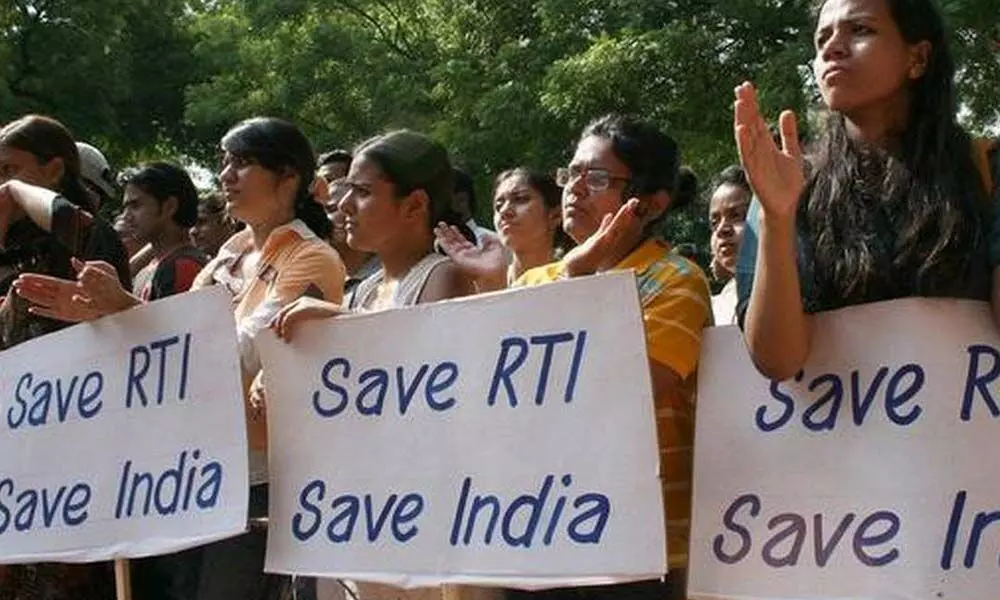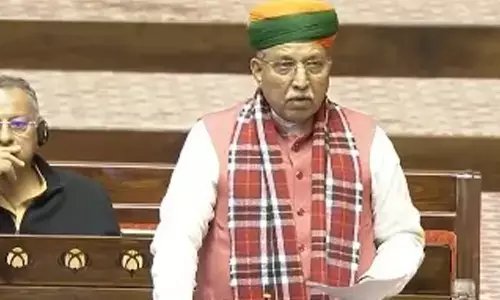Is CIC a tribunal or administrative forum?

Is CIC a tribunal or administrative forum?
The Supreme Court heard extensively on who and how the Chief and ICs at the Centre and the States should be appointed, twice in 2012 and 2013 in Namit Sharma cases.
The Supreme Court heard extensively on who and how the Chief and ICs at the Centre and the States should be appointed, twice in 2012 and 2013 in Namit Sharma cases. First judgment of SC was reversed in review within a year. Reasoning was good but conclusions were drastically illegal in first judgment. Illegal directions were removed in review, but its reasonings were against the spirit of access. Supreme Court has rightly observed that Chief (Chief Central/State Information Commissioner) and ICs (Central/State Information Commissioner) perform judicial function and hence they are akin to courts. They need judicial mind and the Commission should be independent like a court, to adjudicate impartially about the lis regarding disclosure of information and third-party information etc which might affect right to privacy. This was very effective and logical analysis of RTI Act.
But unfortunately, the SC has declared Sections 12(5) and 15(5) of RTI Act as ultra vires of constitution and struck them down and mandated change of rules and appointment of judicial members in CIC and SIC in consultation with Chief Justice. It was mandated that ICs sit in bench only, no individual hearings, and every commission should have a judicial member and he should be part of every bench. Such judicial member must be appointed in consultation with the Chief Justice of SC and HCs. This judgement in 2012 September has landed the entire activity under RTI into a big confusion. ICs all over have almost stopped working. It is not known whether they should continue with scheduled hearings or not. If the appointing provisions are held ultra vires, what will be the fate of appointed commissioners? The judgment was criticised as re-writing of the RTI Act by judiciary and introduction of new provisions which Parliament did not intend.
Hence, the government rushed to SC with a review petition. First judgment was authored by Swatanter Kumar, J, and agreed to by AK Patnaik, J. By the time review reached hearing, Swatanter Kumar, J has retired. Bench was reconstituted with AK Patnaik (who was in earlier bench) and AK Sikri, JJ. While first judgment was opposed as judicial amendment to Parliamentary statute regarding appointment of ICs, the review judgment was U turn of earlier judgement on RTI. Justice AK Patnaik was co-author of both the judgments. The reasoning and analysis of first judgment was proper, but conclusions were drastic and illegal, besides directions being against the RTI Act. The second order has 'legal' conclusions, but its observations are against the spirit of access law. For instance, it reduced the status of Chief and ICs from adjudicators/tribunals to administrators i.e., branches of bureaucracy. Tragedy was that some merits found in review by AK Patnaik J., were not implemented till today. In a way the review judgment (Sept 3, 2013), has cleared the way for functioning of the Chief and ICs all over India. It facilitated the appointments of CICs & SICs. It also allowed politicians, judges and several other office holders to be appointed as Chief and ICs, which was also not the original intention of the Act.
In first order (2012), it was contended that eligibility criteria for appointment of CIC and SICs [SS 12(5), 12(6), 15(5) and 15(6) of the Act] were vague and no nexus with the object of the Act, and hence were violative of Article 14 of the Constitution of India. It was also argued that while enacting these provisions, Parliament had not exercised legislative power in consonance with the constitutional principles and guarantees.
The Supreme Court agreed with the contention that Sections 12(5) and 15(5) of the Act did not specify the basic qualifications of the persons to be appointed as ICs and only mentioned that the Chief IC, and ICs shall be persons of eminence in public life with wide knowledge and experience in law, science and technology, social service, management, journalism, mass media or administration and governance. This would presuppose a graduate who possesses basic qualification in the concerned field. Supreme Court also held that Sections 12(6) and 15(6) of the Act, which provide that the Chief IC, and ICs shall not be a Member of Parliament or Member of the Legislature of any State or Union Territory or hold any other office of profit or be connected with any political party or carry on any business or pursue any profession, do not disqualify such persons for consideration for appointment but these disqualifications will come into play after a person is appointed as Chief or ICs. In other words, after a Chief or IC is appointed, he cannot continue to be an MP or MLA or hold any other office of profit or remain connected with any political party or carry on any business or pursue any profession.
The Supreme Court also held that the Information Commission, as a body, performs functions of wide magnitude, including adjudicatory, supervisory as well as penal functions. ICs have been vested with the power to decline furnishing of information under certain circumstances and in the specified situations. It may also involve the question of prejudice to a third party, unlike in some countries where information involving a third party cannot be disclosed without the consent of that party. Thus, their exercise of powers cannot be arbitrary and must be in consonance with the principles of natural justice, namely, notice to a party, grant of hearing and passing of reasoned orders, and, therefore, the Information Commission is a Tribunal discharging quasi-judicial functions. Court concluded that there is a lis to be decided as to disclosure or protection which may prejudicially affect a third party. Because of these adjudicatory functions, the SC concluded that the Information Commission possesses the essential attributes and trappings of a Court, and their decisions can have serious consequences on various rights including the right to privacy protected under Article 21 of the Constitution.
To perform this function, it requires a judicial mind. For this, the Commission should have independence, and that separation of powers and the independence of judiciary are fundamental constitutional values in the structure of our Constitution as without these two constitutional values, impartiality cannot thrive as has been held by Supreme Court in Union of India v. R. Gandhi, President, Madras Bar Association [(2010) 11 SCC 1]. Apex court, thus, held that though the independence of judiciary stricto sensu applied to the Court system, by necessary implication, it would also apply to Tribunals whose functioning is quasi-judicial and akin to the court system and the entire administration of justice has to be so independent and managed by persons of legal acumen, expertise and experience that persons demanding justice must not only receive justice, but should also have the faith that justice would be done.
The Supreme Court accordingly held that the appointments to the Information Commission are made in consultation with the judiciary, it would be necessary that the commission is required to work in Benches comprising one judicial member and one other member from the specified fields mentioned in Sections 12(5) and 15(5) of the Act. The SC prescribed a new norm that the appointments to the post of judicial member has to be made in consultation with the Chief Justice of India in case of Chief and ICs at CIC and the Chief Justices of the High Courts of the respective States, in the case of State Chief & SICs.
Supreme Court also directed how the process of appointment should go on. It held that the DoPT in the Centre and the concerned Ministry in the States should prepare a panel, after due publicity, empanelling the names proposed should be at least three times the number of vacancies existing in the Commission and the names so empanelled, with the relevant record should be placed before the High Powered Committee mentioned in Section 12(3) and 15(3) of the Act and in furtherance of the recommendations of the High Powered Committee, appointments to the Central and State Information Commissions should be made by the competent authority.
The unfortunate thing is that by declaring that Chief and ICs were not courts but administrative offices, the significance, independence and importance of the CIC and SICs have been totally diluted.
(The writer is former Central Information Commissioner and Professor at Bennett University)














